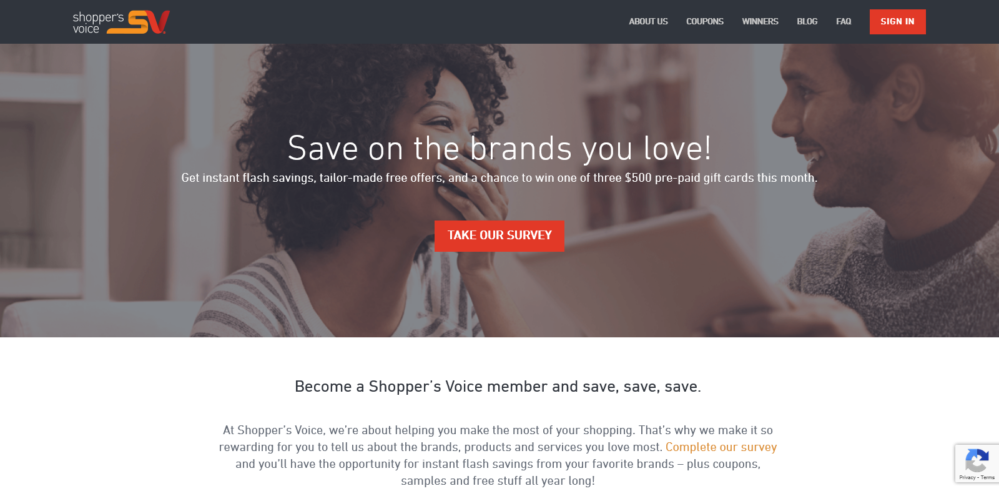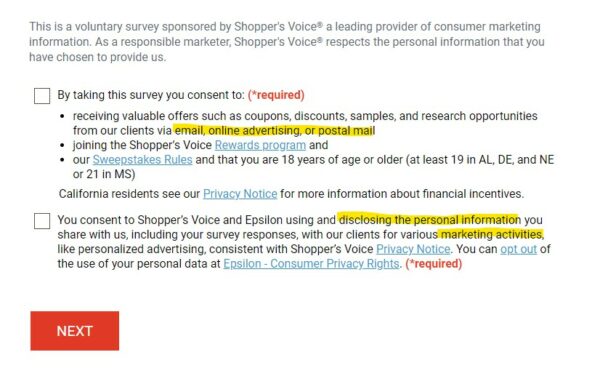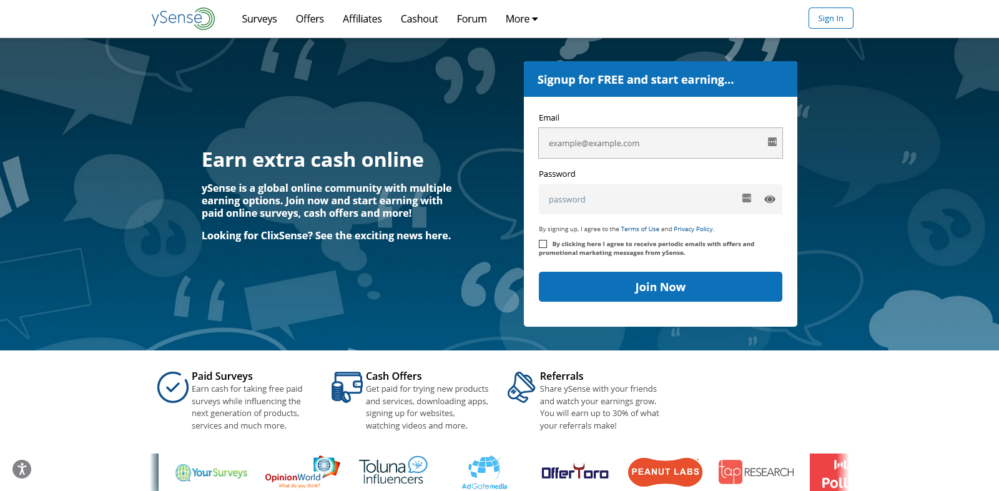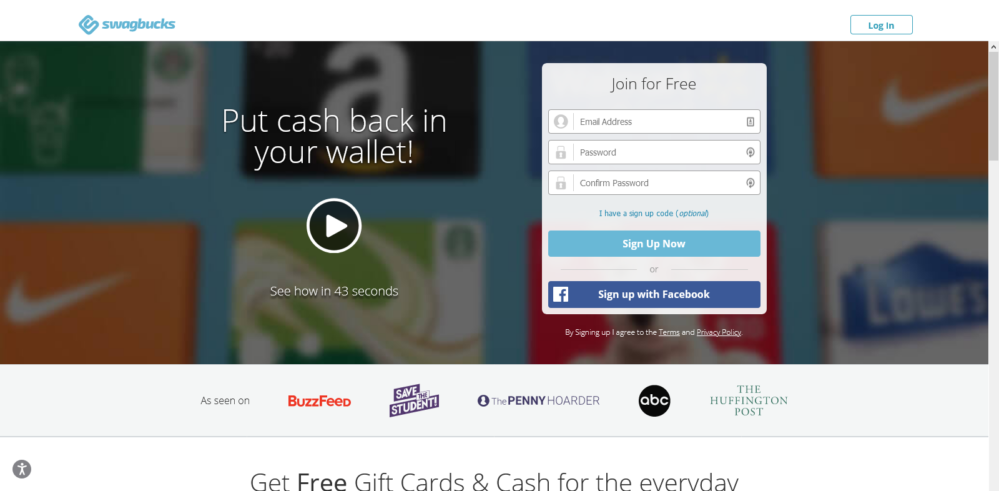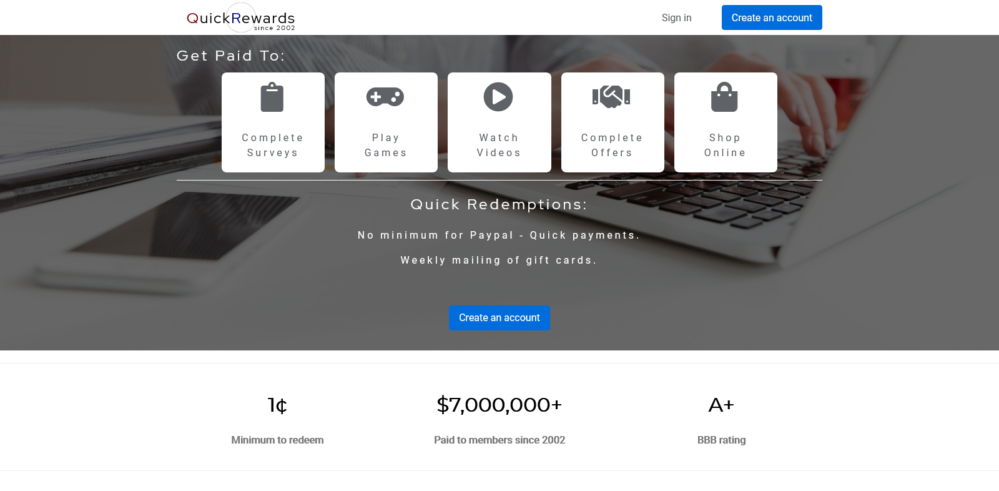Shopper’s Voice Review
At first glance, Shopper’s Voice seems like a typical survey site. That’s why we were completely surprised when we discovered what the site is all about. Read our review to avoid an unpleasant surprise after signing up.
Is Shopper’s Voice a legit market research site?
No, this is not a legit market research panel site as we see it. In fact, calling this a valid market research site would be in violation of the code of conduct published by international market research associations such as ESOMAR.
Article 1d: ICC/ESOMAR Code of Conduct:
“If researchers engage in non-research activities, for example, promotional or commercial activities directed at individual data subjects, they must clearly distinguish and separate those activities from research.”
On one side, Shopper’s Voice looks exactly like a standard survey site because you’re asked to take surveys in return for rewards. However, as opposed to regular survey sites you’ll not be earning money from filling in surveys.
Instead, this is just a landing page to convince people to sign up for unsolicited marketing. And in a clever way, they provide all the right checkboxes, policies, terms and notices required by regulators. Unfortunately, most people don’t read the details of these policies.
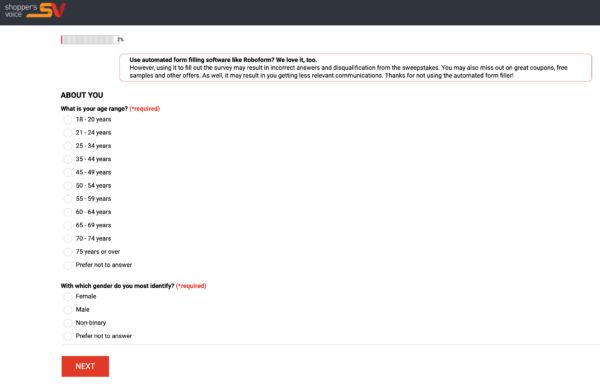
Shopper’s Voice Welcome Survey
Check what you’re actually agreeing to
Most survey sites follow the same system: You register, fill out your profile and after taking a few surveys you’ll cash out a reward. Shopper’s Voice is different. You start by taking a long survey, and then you get bombarded by 3rd party offers. While you think you are joining a survey site, you’re just providing your consent to be added to a marketing email list. Basically, you’re accepting to receive unsolicited junk emails and offers from anyone Epsilon decides to sell your information to.
In their defence, it’s clear that Epsilon has made an effort to comply with Canadian and US privacy regulations by keeping users informed of what they are signing up for (see screenshot below), and asking for users’ detailed consent.
By joining their “panel”, you basically give them permission to share your personal information with anyone they like. Why we don’t like this? In reality, you lose control over who has access to your personal data. You basically have zero control over what type of companies are going to contact you. And as you can read in the warning from the US Department of Justice (quoted further down), Epsilon has not always been selling data to legit companies.
Is it worth getting registered?
By signing up for Shopper’s Voice, you don’t only share a large amount of personal information about yourself. You also give the company behind Shopper’s Voice, Epsilon, the right to share your information with as many companies as they want, so that they can send you marketing offers through email, online advertising and mail. Unless you enjoy getting bombarded by spammy advertising, we think this is a site to stay away from. Especially when considering Epsilon’s history of facilitating scams as you can read about in the next part:

Shopper’s Voice Dashboard
The owner of Shopper’s Voice sold data to fraudsters
According to a press release on January 27, 2021, by the US Department of Justice, the owner of Shopper’s Voice (Epsilon) agreed to pay $150 million for facilitating elder fraud schemes.
“The consumer data sold by the DTC Unit to fraudsters came both from other fraudulent clients and from legitimate Epsilon clients, including non-profit and charitable organizations. DTC Unit employees continued to sell consumer data to clients engaged in fraud despite knowing that those and similar clients had been arrested, charged with crimes, convicted, and otherwise subject to law enforcement actions for false and misleading practices. Epsilon admitted that the DTC Unit sold more than 30 million consumers’ data to fraudulent schemes.”
It was alleged that over a nine-year period, from July 2008 to July 2017, employees of a unit in Epsilon’s US practice sold data to clients who they knew were engaged in fraudulent mass-mailing schemes, which aimed to con people with “falsely or unlawfully promised prizes, personalised psychic services, automobile warranties, cures and treatments, and grant opportunities”.
For us, this was the last nail in the coffin.

